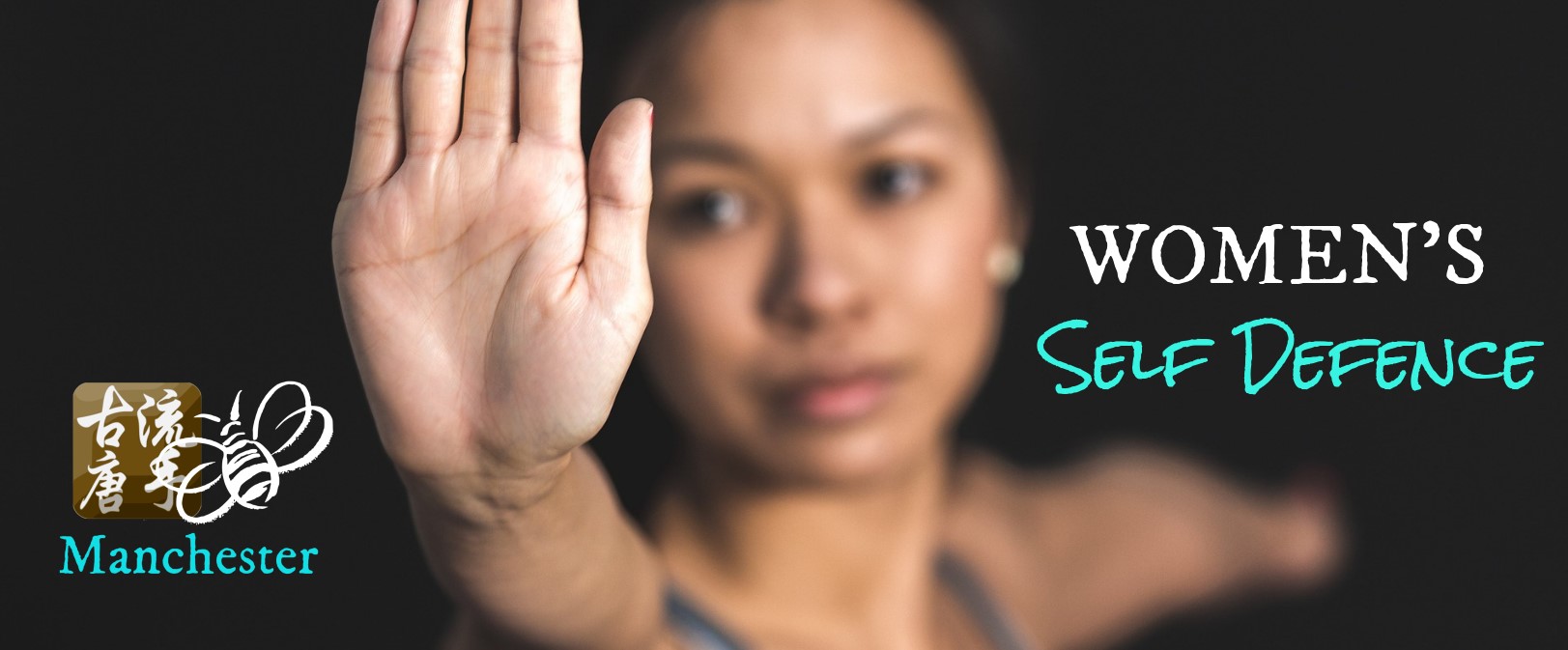The Mancunian Missing Link Karate dojos currently embark on a special venture: Bringing the highly developed Women's Self Defence concept of the German police to England. This raises an important question that we encountered in Germany more than two decades ago: What should be the content of a course like this - and what should the perfect instructor team look like?
Does it, for example, make sense to have male instructors in a course that addresses male violence against women? The answer is yes - but only in the context of realistic training and a holistic concept that features more than just physical techniques.
Self-Defence: The Role of men in female-only courses
The range of Women's Self-Defence courses has increased dramatically in the recent years. With the growing supply of these offers the question about male instructors in female-only courses comes up.
Before we deal with this question, we need to establish which content should feature in a successful course concept, and which requirements it does therefore demand of any instructor? The Bonn Police Department in Germany has developed a conclusive concept, which includes the answer to these questions and has been applied widely and successfully.
The idea:
Rather than limiting a course to the physical skills of self-defence and the drilling of techniques, the concept works with the wider idea of self-assertiveness. This includes recognizing and avoiding potential danger as well as setting and enforcing personal boundaries. This happens in three steps:
1) Understanding the criminological background
We examine the perceived and real dangers that women and girls face in Greater Manchester. Additionally we look at the "typical" victim and perpetrator roles and do away with harmful myths - parking garages might not be the most dangerous locations for sexual crimes!
The objective of this step is to enable women to assess risks realistically. We want to shift the focus away from extreme situations to the more common every-day transgressions.
2) Psychological knowledge and practicing
This is the most important step of this concept. From the general role of women in society we quickly move towards personal experiences and worries of the participants. In this step we learn to identify signs that things are going wrong and how to de-escalate conflicts. This includes dealing with the physical and mental effects of fear, shock and anger. A comfortable and trusting atmosphere is essential here and a male trainer might not be able to enable this. Therefore the first and second step of the training need to be led by a female instructor.
3) Physical Self-Defence
This part is all about practicing reactions and behaviours in numerous scenarios. A female instructor alone is not sufficient here. For a scenario to be realistic the attacker needs to be a man - even a friendly and likable man. The stereo-typical perpetrator of a sexual offense hardly ever jumps out of a bush. Most sexual offences happen in the context of family, friends and work. Most cases of sexual harassment - whether a stupid comment of a supervisor at work, a teacher or a personal trainer - are committed by men that stand close to the women in some way or another.
Rather than demonising men in general, it is much more productive to learn how to set boundaries and enforce them. The ideal male training partner for this type of exercise fulfils the following criteria:
- He has good pedagogical skills
- He is only present in specific phases of the course
- He is aware of male privilege in general and doesn't take himself too seriously
- He is happy to leave the room at any point when this is needed by the participants
- He has well developed skills in martial arts
This final point is important as a successful course in self-defence features a good part of fighting. However, studying and drilling specific techniques will not result in any preparedness for a conflict situation. At any time of extreme stress and crisis we fall back on only 20% of our knowledge and skills, which should have been drilled to the point of automatic reflexes. In a short course of only a few weeks there is simply no time for that. Luckily, specific techniques are not necessary for most self-defence situations.
Statistics show that the typical sexual perpetrator is not looking for an opponent but an easy victim. Even a weak, mainly verbal defence will stop around 68% of all sexual attacks. A strong, assertive, even aggressive answer to an assault will raise the success rate to 84%. This does not require a background in the martial arts.
Thus the focus of our self-defence concept is not the drilling of techniques, but the confrontation with a male "attacker" in a variety of situations close to reality - and the successful overcoming of these situations. For this purpose the men are not martial arts coaches, but "dummies", who practice realistic scenarios with the women and give them the opportunity to search for solutions.
This type of exercise under conditions as close to reality as possible will show successful results. For the men in this course this means bruises, scratches, welts and insults. For the women it means to confronting their fear and growing out of it - while being coached by the female instructor of the course.
This concept takes a holistic approach to self-defence. Instead of a pure transfer of knowledge or irrelevant ideology, it focuses on straight-forward and practical solutions. The involvement of men is just as important as the role of the experienced and competent female instructor. Her task does not finish with the delivery of the course, but she also needs to look after their emotional and mental needs as a course as this can be psychologically demanding.
Written 2006 by D. Kröschel, J. Höller and H. Miketta with 2020 input from Antje Timmermann, Manchester


